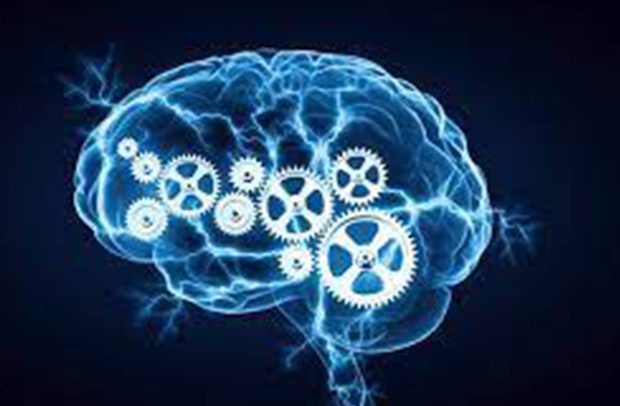MOVING ON, let now turn our attention to another type of intelligence: Emotional Quotient (EQ). The ability to notice, utilise, and regulate your own feelings/emotions in order to lower stress, clearly communicate, convey sympathy, defeat obstacles and diffuse conflicting situations is known as emotional intelligence (EQ). It is possible to grow more robust relationships, achieve higher at school and at work, and to actualise your personal and professional aspirations when you use your emotional intelligence. Additionally, it can assist you in establishing a connection with your emotions, putting your intentions into practice, and choosing what is most important to you.
According to Singh (2001), emotional intelligence (EI) enables managers and staff members in professional contexts to recognize and control their emotions. This demonstrates how crucial EI is to manage the job well. Goleman (1995) identified four aspects of emotional intelligence, including
Self-management: to have the capacity to restrain impulsive thoughts, feelings, and actions, to regulate your emotions in healthy ways, to take the initiative, to keep your word, and to adjust to changing circumstances. Self-awareness: to be aware of your feelings and how they influence your actions and thinking. To be confident in yourself and are aware of your talents and flaws (Shahzad et al., 2011). Social awareness: To be able to discern emotional indicators, comprehend the needs and worries of others, feel at ease in social situations, and comprehend the power relationships in a team or organization (Goleman, 1998). Relationship management: to have the ability to create and sustain positive relationships, communicate effectively, motivate and influence people, collaborate effectively with others, and handle conflict.
Thus far, Hanzaee, & Mirvaisi, (2013) in their study set out to determine the association between employee emotional intelligence and client satisfaction. The result revealed that, in especially, a hotel context, which is a work environment and frontline, employee EQ has a significant role in customer satisfaction and retention. Subsequently, a high level of emotional intelligence can help you lead and inspire people, negotiate the social difficulties of the workplace, and succeed in your job. Many businesses now prioritize emotional intelligence above technical competence when evaluating key job prospects and conducting EQ tests prior to hiring.
Away from this, the third type of intelligence identified in this paper is the Social Quotient (SQ). This type of intelligence can be simply defined as, the ability to get along well with others and get them to cooperate with you. SQ according to Albrecht (2006), goes beyond the typical “social courtesies” of saying “please” and “thank you,” as well as the so-called “people skills” that are apparently valuable in the workplace. Not at all, SQ implies a depth and breadth of life knowledge, a deep knowledge of one’s culture and possibly other cultures, and the accumulated wisdom that comes from constantly observing and learning what works and what does not work in human situations.
Traditional classroom settings do not support complex social behaviour interaction. In contrast, students in conventional settings are viewed as learners who need to be exposed to progressively more complicated types of information. Few of these abilities, which are essential for survival in the world, can be developed in the way that schools are set up today. Traditional schools severely restrict the development of “natural psychological” skills, thus graduates leave with severe disabilities that prevent them from being able to support themselves. In contrast, pupils who have had the chance to hone their abilities in mixed-age classes and democratic environments outperform their less socially adept peers.
Lastly, AQ refers to a person’s capacity to strive against and overcome challenges, issues, or difficulties while also transforming them into chances for greater success. A new paradigm called AQ is extremely helpful when facing adversity, which can occur in all spheres of life. The majority of people are likewise relatively new to the AQ variable. The ability to overcome challenges in life and turn them into opportunities for achievement is referred to as AQ. The puzzle of why two people with similar IQs and EQs respond to challenges in life so differently led to the development of AQ. Basically, AQ may be used to improve the efficacy of teams, relationships, families, communities, cultures, societies, and organizations. It can also be used to forecast a person’s resilience and perseverance.
To conclude, Intelligence is frequently defined as our intellectual potential; it is something we are born with, something that can be tested, and a tough capacity to modify. There are several types of intelligence but the Intelligent Quotient appears to be the most talked about. In this paper, we identified the other types of intelligence to include; Emotional Quotient (EQ), Social Quotient (SQ) and Adversity Quotient (AQ). While a person might be particularly strong in a specific type, such as IQ, he or she most likely possesses a range of abilities. Thus, every individual represents a continuum of all types of intelligence. To this end, IQ represents a person’s ability to solve logical problems, EQ refers to his ability to understand his and others’ feelings, SQ represents a person’s ability to coexist in a human setting and AQ represents a person’s tolerance level in the face of difficulties.
I hope you enjoyed the read. Hit me up, and let’s keep the conversation going!
BY Maxwell Ampong


